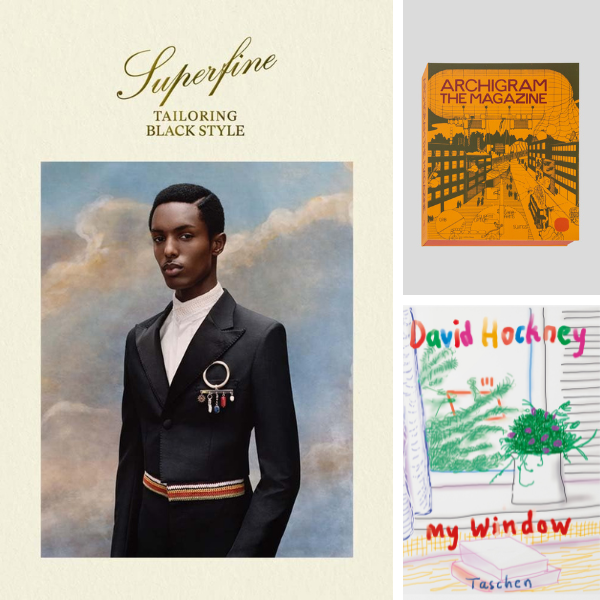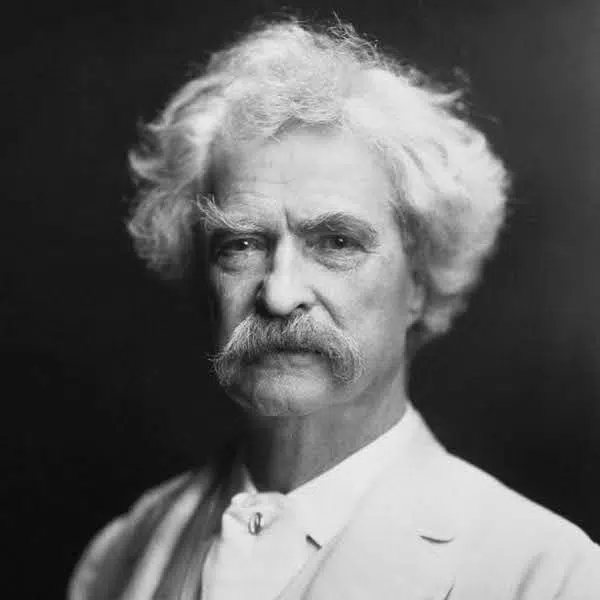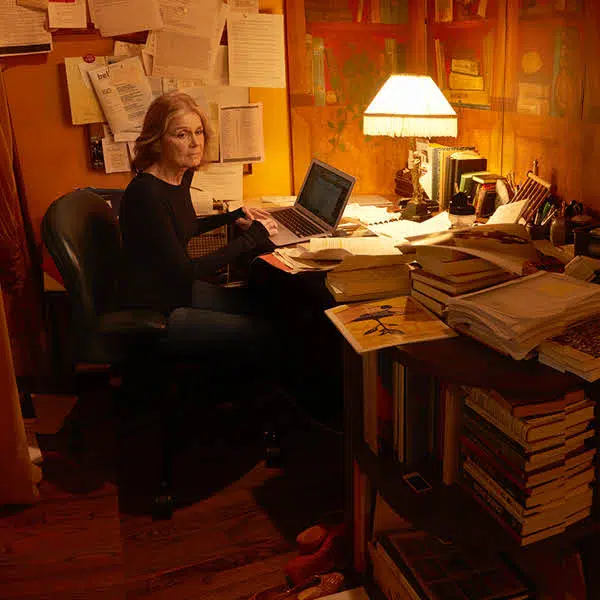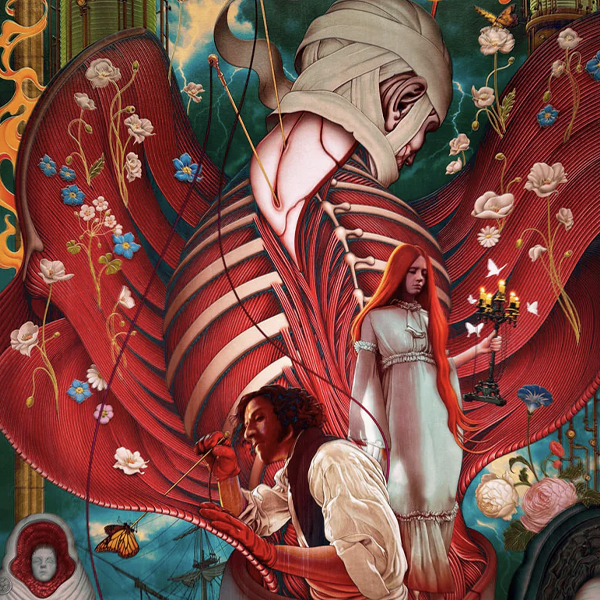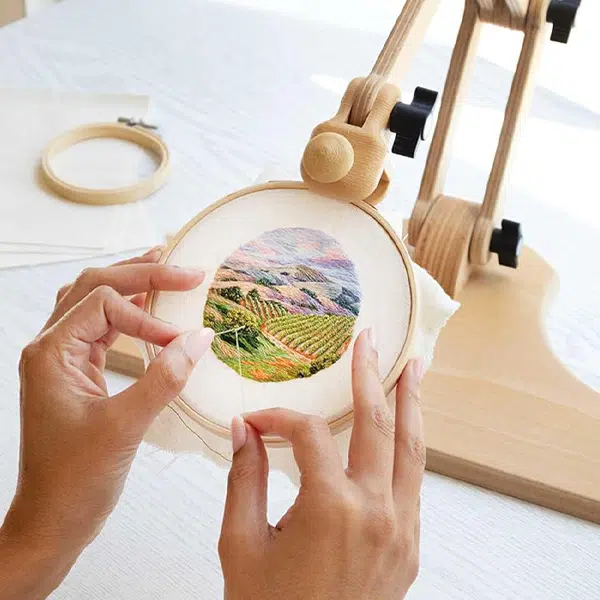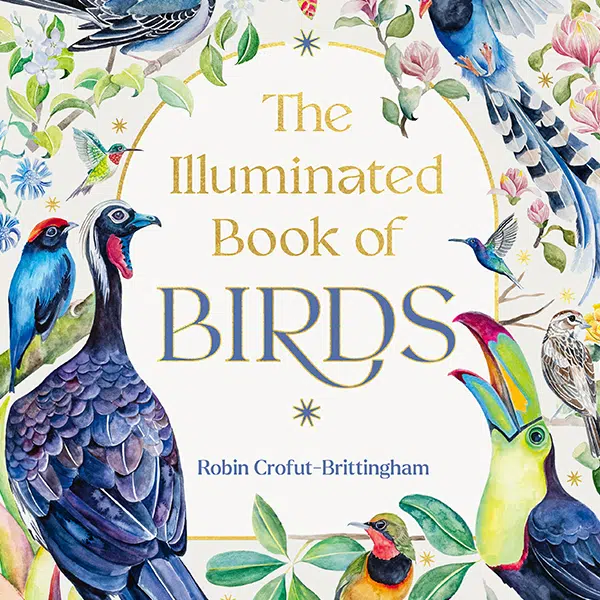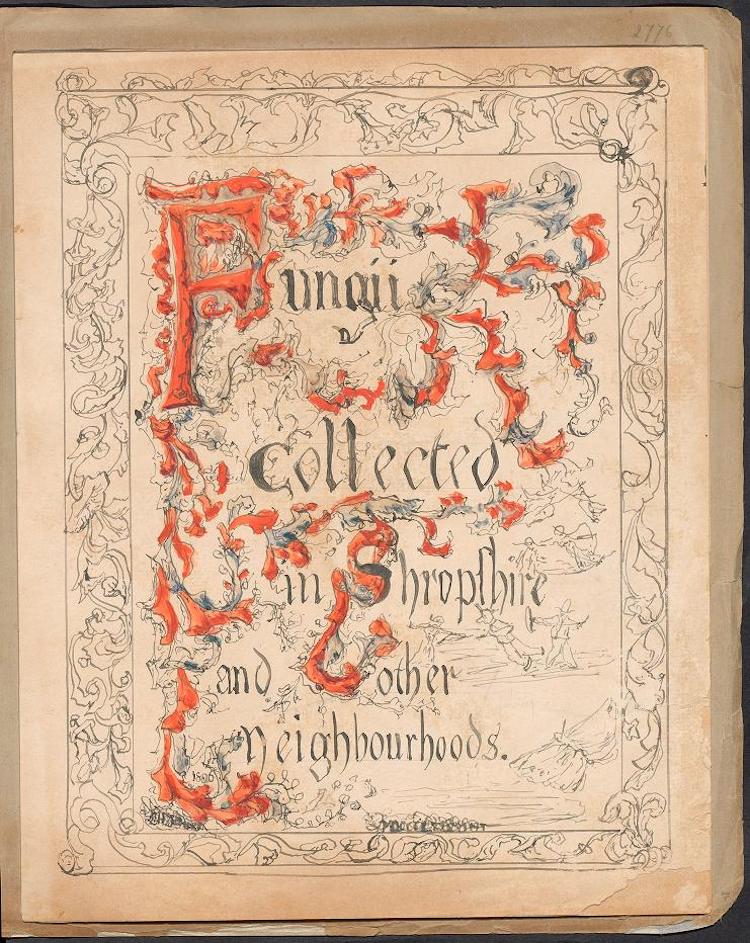
Years before we had cameras, people relied on artists and their work to capture the world around them. This resulted in a tradition of exquisite botanical illustrations, in which painters and draftspeople painstakingly rendered every detail that they saw into two-dimensional form. The book Fungi Collected in Shropshire and Other Neighbourhoods is an example of this art form. Created in the 19th century by a woman author, it faithfully follows her archival journey of England and Wales's numerous fungi species—traveling much further than the title initially suggests.
The project itself is divided into three dense volumes. Lewis—whom we know very little about—spent over 40 years (from 1860 to 1902) wandering her country and sketching the mushrooms that she came across. It should come as no surprise that she ended up with hundreds of illustrations from her efforts, all made with pencil and filled in with delicate layers of watercolor. Sometimes, just two drawings are placed on a page, while other spreads feature several fungi that have been collaged together. Accompanying each piece is a hand-written note of what species it is.
Despite the incredible efforts that went into this book, it appears as though it was a self-initiated project which Lewis worked on across her lifetime. The only known volumes are hand-drawn and hand-bound, suggesting they were the only copies made. Even so, historians believe that Lewis likely had some formal training in decorative illustration, most likely in an unrelated field, and then applied her passion for plant life and science to her carefully crafted books.
You can browse all volumes of Lewis's book on the Internet Archive.
A vintage 19th-century book titled Fungi Collected in Shropshire and Other Neighbourhoods documents the biodiversity of mushrooms in England.
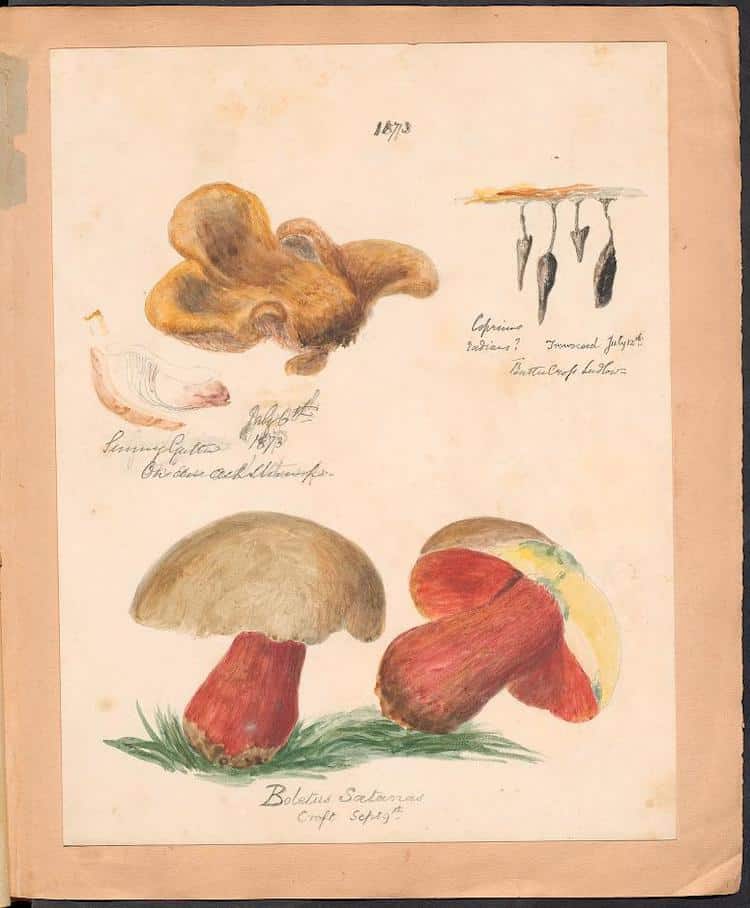
It was written and illustrated by a female author named F.M. Lewis over the course of over 40 years (1860–1902).
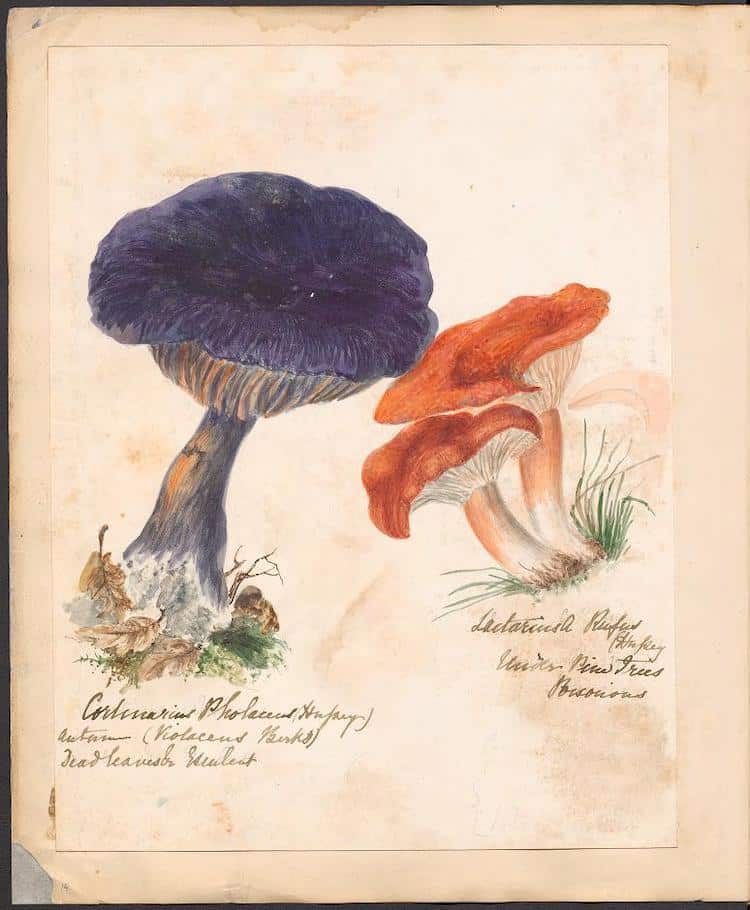
The watercolor and ink illustrations capture fungi that Lewis found across Endlang and Wales.
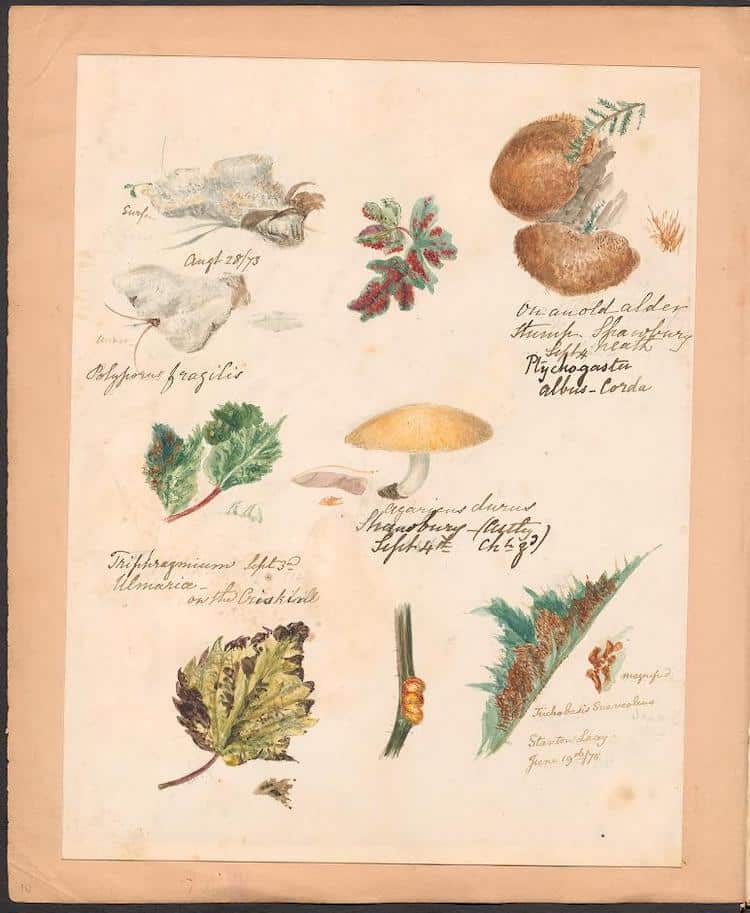
The project is divided into three densely packed volumes. Many pages include several species collaged together.
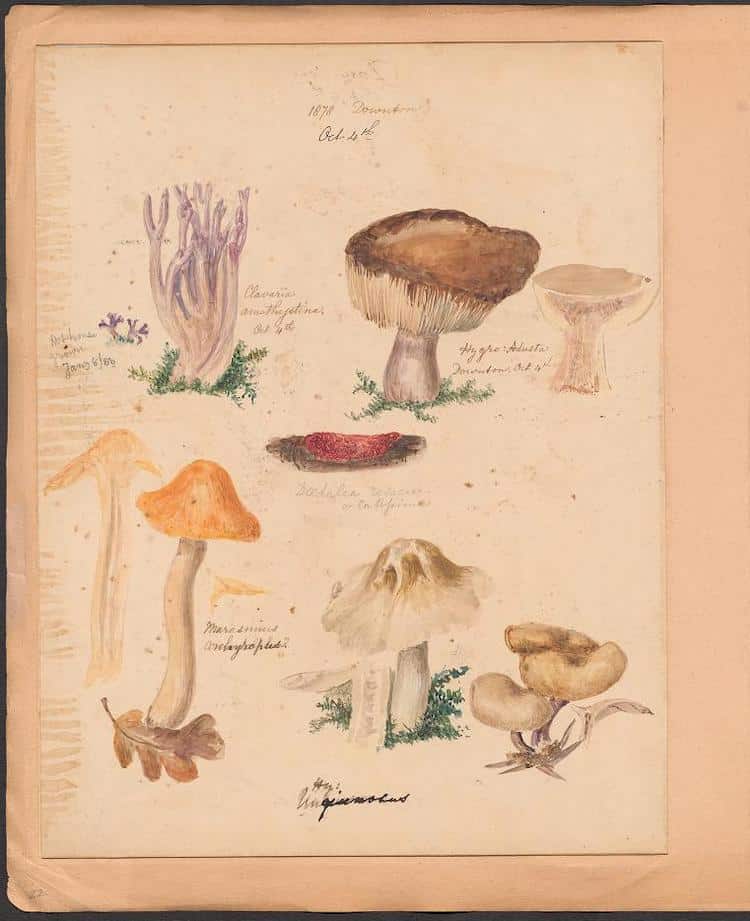
The only known copy of the book belongs to the Cornell University Library and the Biodiversity Heritage Library.
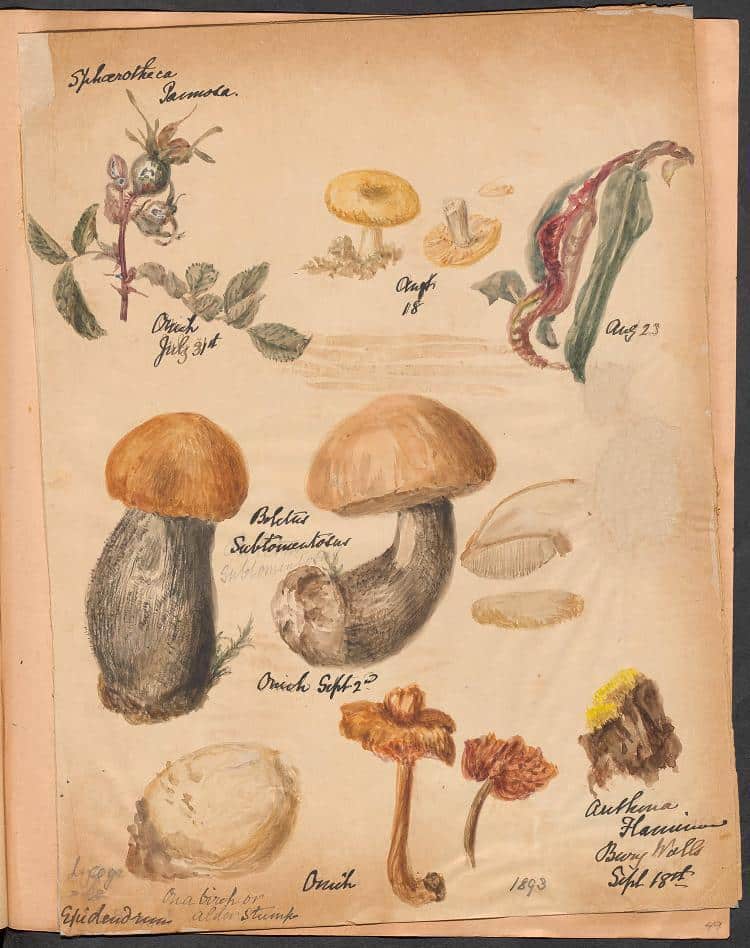
h/t: [Open Culture, The Public Domain Review]
All images via the Internet Archive.
Related Articles:
What is Botanical Illustration? Learn About the History of This Scientific Art Form
Download Over 150,000 Illustrations of Flora and Fauna for Free
Interview: Designer Restores Beloved 19th-Century Botanical Catalog and Places It Online
















































































